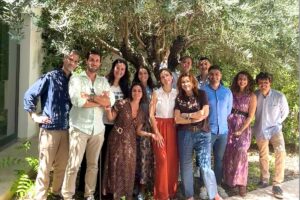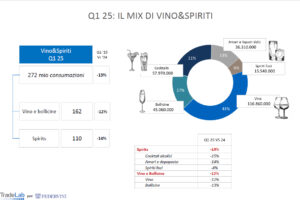Despite the fact that humans have cultivated the olive tree for six thousand years, only today can we truly say we know not only the features of this magnificent plant, but also its genetic structure. The research team of the Center for Genomic Regulation in Barcelona, led by Toni Gabaldon, has announced, in an article in the scientific journal "Gigascience", that they have sequenced the complete genome of the olive tree, symbol of the Mediterranean.
The research unearthed many surprises, such as the sequenced genome generated about 1.31 billion genetic sequences and over a thousand gigabytes (or one terabyte) of data. “We are surprised”, said Tyler Alioto, one of the researchers, “because we have detected more than 56 thousand genes, many more other plants in the same family, and twice as many as the human genome”.
The researchers also compared the DNA of the olive tree with that of other varieties, such as the wild olive, and identified the genes that determine the differences in the leaves, roots and fruits at different stages of ripeness. But they found out more. “Knowing the complete genome of the olive tree”, said Pasquale Saldarelli, a researcher at the National Research Council who has been studying Xylella, “will help us better classify the data we already have, but that were based on RNA and therefore not complete, and understand the function of genes and how they work, as well as why some genes are activated and others are not”. The olive tree and Xylella, stressed Saldarelli, “is an unprecedented pairing in nature. We do not know how the bacterium interacts with the plant, or how the plant reacts. Further studies will reveal whether the olive tree possesses the genes that make it resistant”.
Meanwhile, MEPs Paolo De Castro and Raffaele Fitto have tabled a question to the European Commission, requesting a written answer, asking to repeal the ban on Salento farmers to plant olive trees susceptible to Xylella infection in the area demarcated as infected, which includes the provinces of Lecce and part of Taranto and Brindisi. The ban on planting provided for in Article 5 of the Implementing Decision number 789/2015, “is justified only if there are outbreaks and eradication is possible”, the two MEPs explained, noting that “on the contrary”, in the areas mentioned, “the pathogen has spread endemically over large areas and on many hosts, so that planting species at-risk of Xylella would be irrelevant”.
Further, “taking into account the first positive research results on some olive tree varieties that are resistant to the bacterium” as well as “creating the conditions for a revival of business activity for olive tree growers”, De Castro and Fitto have asked the Commission to repeal Article 5 of the Decision.
Copyright © 2000/2025
Contatti: info@winenews.it
Seguici anche su Twitter: @WineNewsIt
Seguici anche su Facebook: @winenewsit
Questo articolo è tratto dall'archivio di WineNews - Tutti i diritti riservati - Copyright © 2000/2025







































































































































































































